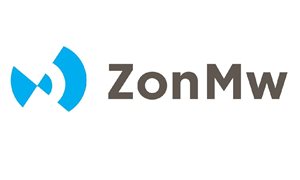 From 15 to 17 November, the first international ENABLE symposium—which is fully booked—will bring together 300 PhD students and postdocs from all around Europe.
From 15 to 17 November, the first international ENABLE symposium—which is fully booked—will bring together 300 PhD students and postdocs from all around Europe.
Barcelona is a major hub for biomedical research in Europe and as of next week it will also become the capital for young biomedical researchers working in Europe. From 15 to 17 November, the Palauet Casades, located in the central “Col·legi de l’Advocacia de Barcelona”, will host an as yet unparalleled symposium, for which the 300 places available have already been booked up— half of these reserved by researchers outside Spain.
The event in question is ENABLE (EuropeaN Academy for BiomedicaL SciencE), the first scientific symposium organised by and for young biomedical researchers from around Europe. The brainchild of the Institute for Research in Biomedicine (IRB Barcelona), three other European centres (in Denmark, the Netherlands and Italy) and a science communication company, ENABLE was awarded 500,000 euros by the European Union to organise four symposia in four European cities from 2017 through to 2020.
Joan J. Guinovart, director of IRB Barcelona, says, "ENABLE is a fantastic opportunity to further strengthen Europe as a world leader in biomedical research and to consolidate Barcelona, the host city of the first event, as one of its hubs."
ENABLE seeks to contribute to the training of the next generation of scientific leaders in biomedicine, set up a sustainable network of young researchers beyond 2020, and engage in active dialogue with the public. Organised jointly by PhD students from four European centres, the three-day ENABLE symposia include scientific talks, a Career day, and outreach activities.
Scientific objectives: training, networking, and building a future
Entitled “Breaking down complexity. Innovative models and techniques in biomedicine”, the Barcelona event will address a wide range of topics, from synthetic biology and translational medicine to the cutting-edge technologies and models used for research purposes. The scientific programme includes eight presentations by international guest speakers, as well as “Master classes” and a ‘Tapas with the speakers’ evening, both initiatives designed to encourage interaction of participants with the guest speakers. All the sessions programmed are fully booked.“Our aim was to design a programme that involved leading researchers and that facilitated their contact with young scientists who aspire to be the leaders of biomedical research of the future. The young researchers that form the Organising Committees have been charged with this mission,” explains Clara Caminal, head of Academic and International Scientific Affairs at IRB Barcelona and coordinator of ENABLE.
"ENABLE is a unique opportunity to work with colleagues in the other European centres and to tackle a wide range of managerial and organisational tasks," says Sanja Zivanovic, a PhD Student at IRB Barcelona who serves on the Organising Committee of the scientific symposium and also the Local Organising Committee.
Not only science: employment opportunities beyond academia.
A scientific career is not always limited to academia. “Everyone is aware that only a small percentage of those holding a doctorate end up heading their own lab. This is why we have to offer alternative career options,” Clara Caminal says.
In this regard, the organisers have devoted the first day, Wednesday 15 November, to employment opportunities for doctors in biomedicine. During the day, there will be talks given by professionals from many backgrounds who work outside academia, such as entrepreneurs, capital risk investors, representatives from pharmaceutical companies, editors of scientific journals, and science communicators, among others.
In addition, more than 30 organisations related to the biomedical sector will be participating in the Opportunity Fair, where they will give brief presentations on the job offers available. The programme also includes eight workshops and courses devoted to various subjects, such as how to communicate science, how to make the most of the skills acquired during PhD training, how to prepare a job interview, and issues related to intellectual property and technology transfer, among other topics.
What does the general public know about biomedicine?
One of the concerns of science, and also therefore of young researchers, is how to communicate biomedical discoveries to the general public, specifically how to engage in a dialogue with society about the promise of biomedical research when this work arouses public interest. To tackle this subject, ENABLE has focused its third cornerstone on science dissemination.The organisers have designed public outreach activities, which form part of the initiatives programmed for next week’s Science Week in Catalonia. The activities planned include a visit from 60 primary and secondary schools kids to IRB Barcelona’s labs, and two public debates involving local prominent figures held in four pubs in Barcelona.
Related news items

Joint research in regional hospitals New research projects from promotion fund
22 November 2022Four research projects have been honored in the promotion fund of the Radboudumc and four regional hospitals. The research projects, which are a collaboration between CWZ, Jeroen Bosch Hospital, Rijnstate, Sint Maartenskliniek and the Radboudumc will receive a contribution of 240,000 euros.
go to page
Trained immunity’s role in kidney disease
17 November 2022Researcher(s) Jordi Ochando of the Icahn School of Medicine at Mount Sinai in New York and Raphaël Duivenvoorden of the Department of Nephrology at Radboudumc explain how trained immunity can have detrimental effects in kidney disease and transplantation.
go to page



